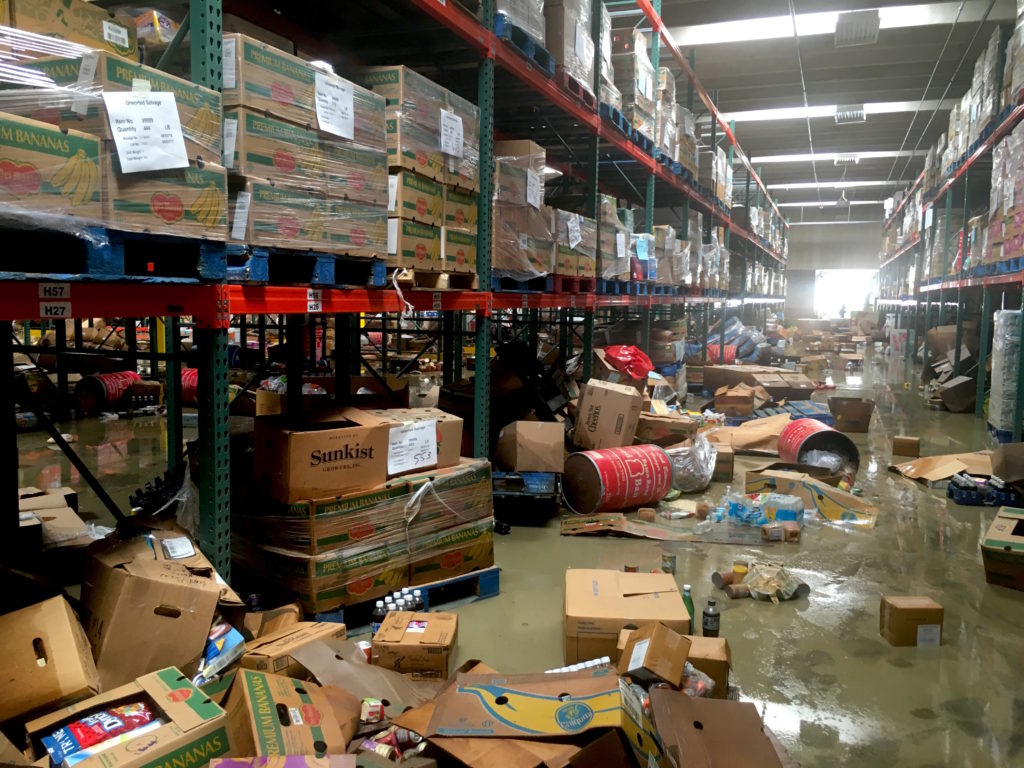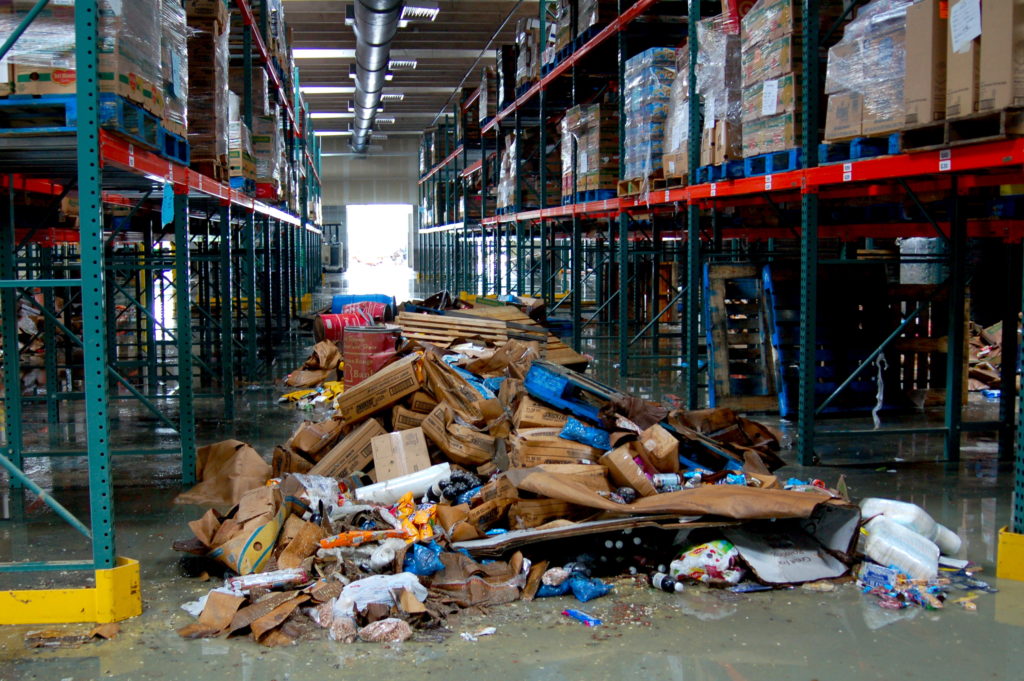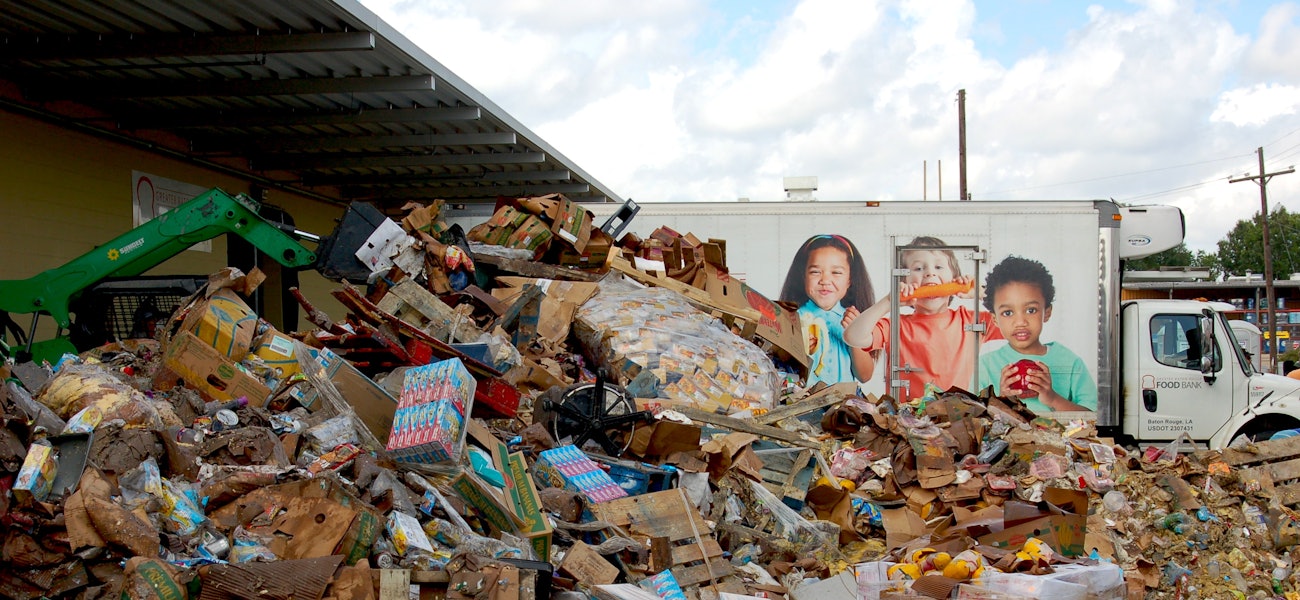After taking in more than five feet of water at its headquarters on South Choctaw Drive, the Greater Baton Rouge Food Bank estimates it lost nearly 1 million pounds of food. The floodwaters that pervaded the Capital Region earlier this month swallowed perishable and non-perishable goods alike by the shelf-full.
Greater Baton Rouge Food Bank CEO Mike Manning says he hadn’t quite known what to expect, being unable to enter the water-logged building until Monday, Aug. 15. There was still water deep enough to wade in at that point.
Shelves, knocked on their sides, lined the floor. Soggy cardboard boxes lay open, spilling their contents. Stray cans floated in the remaining water. Pallet by pallet, Manning and his staff and volunteers began inspecting the food, throwing out the majority and salvaging what wasn’t contaminated.
|
|
|

“We won’t know the real number until it’s all out,” Manning says, referring to the lost goods. “At first, we estimated 500,000 pounds. Now, after beginning inspections, we know the damage is going to be more like a million pounds.”
Food bank staff and volunteers are working out of two temporary facilities—a spare warehouse at 13112 S. Choctaw Drive and offices at the Louisiana Department of Agriculture and Forestry—as they work to complete demolition and cleanup work at the damaged site.
Manning says being split in two directions has been challenging.
“This [flooding event] is our time to respond, not our time to ask for help,” he says. But without their usual resources, such as a large loading dock and several delivery trucks, contributing to the flood relief effort has been tough.

Despite its losses and those challenges, the food bank has managed to contribute significantly to the community. As of Friday, Aug. 19, just four days after surveying damages, Manning and his staff were working to deliver what was salvaged to shelters in the area.
Manning says money is the best donation citizens can make to the food bank as it works through its damages.
|
|
|
“We need those dollars to pay our staff overtime, to rent equipment to replace the things we lost, to complete cleanup of the warehouse,” he says. “Food donations are always welcome, but at this time it’s difficult for us to process them.”
Monetary donations will also go farther with the food bank because of the organization’s national and wholesale relationships, Manning says. A dollar can stretch further with the non-profit than it can at a grocery store for donations.
Donations in the form of food and physical help from parent organization Feeding America have softened the blow of the disaster as well, Manning says.
To donate to the Greater Baton Rouge Food Bank, visit the website. To see progress at the warehouse, check its Facebook page.





